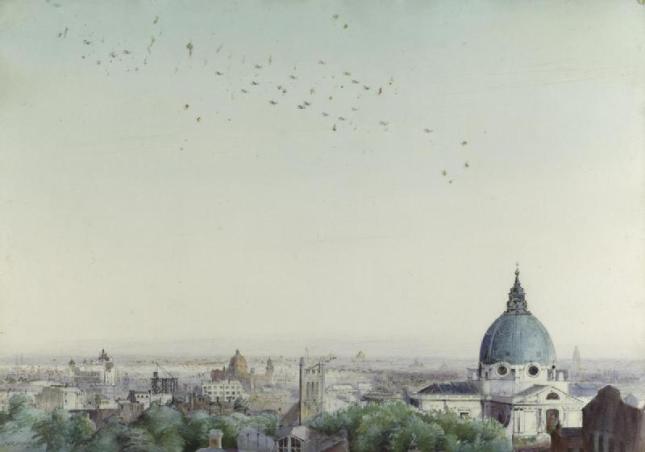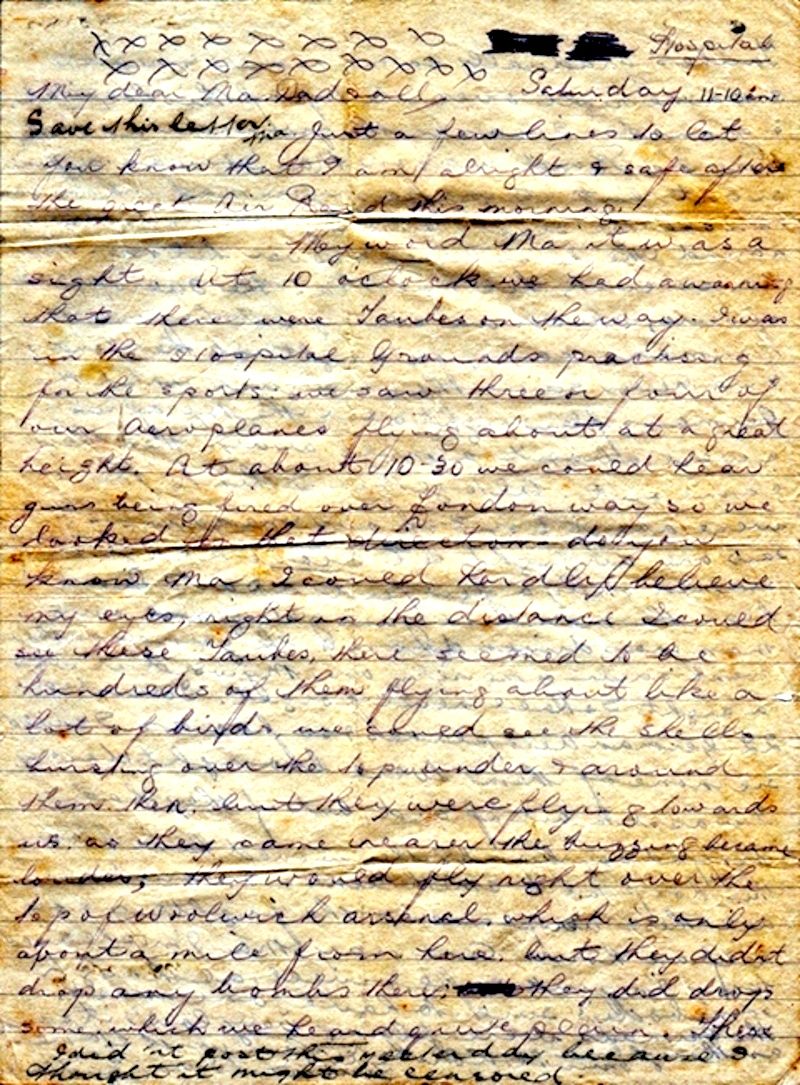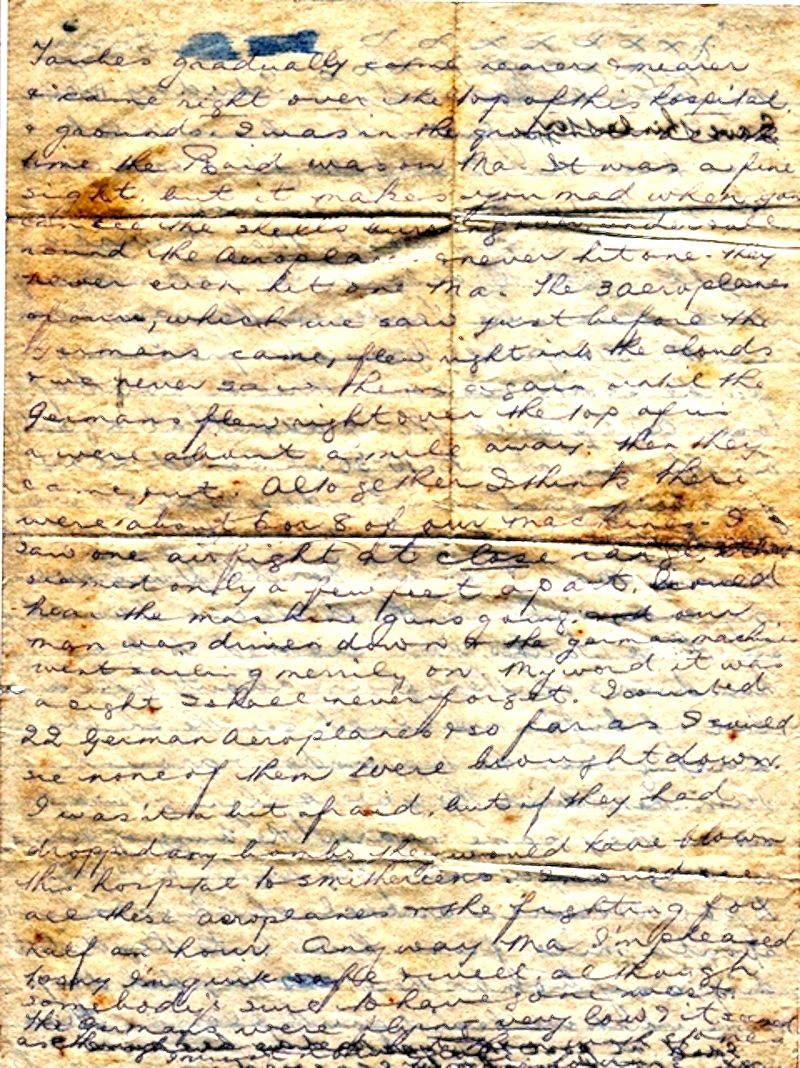Radcliffe on Trent WWI letters
Herbert Sudbury Smith

A Daylight Raid On London, 7th July 1917, seen from the roof of the Royal College of Science with the Brompton Oratory in the foreground. Photo by Norman G Arnold (C) IWM
Herbert Sudbury Smith (known as Sudbury) joined the Tank Corps on 9 Nov 1916 as a Gunner.
Sudbury trained with the Tank Corps at Bovington Camp near Wareham, Dorset, but on 11 Feb 1917 he was admitted to Bovington Camp hospital with measles. After this he was hospitalised a number of times with disordered action of the heart (DAH), including a period spent in Brook War Hospital, near Woolwich. He was discharged unfit for War service on 23rd Oct 1917.
Click on original letters below for larger image
Letters courtesy of the family
In a letter to his parents from the Brook War Hospital near Woolwich on 7 July 1917, Sudbury describes an air raid that he witnessed:
Saturday 11.10 amMy dear Ma, Dad & all,
Just a few lines to let you know that I am alright & safe after the great Air Raid this morning.
My word Ma it was a sight. At 10 o’clock we had a warning that there were Taubes on the way. I was in the hospital grounds practising for the sports: we saw 3 or 4 of our aeroplanes flying about at a great height. At about 10.30 we could hear guns being fired over London way so we looked in that direction – do you know Ma I could hardly believe my eyes, right in the distance I could see these Taubes, there seemed to be hundreds of them flying about like a lot of birds, we could see the shells bursting over the top, under and around them then, but they were flying towards us, as they came nearer the buzzing became louder; they would fly right over the top of Woolwich arsenal, which is only about a mile from here, but they didn’t drop any bombs there; they did drop some which we heard quite plain. These Taubes gradually came nearer and nearer and came right over the top of this hospital. I was in the grounds all the time the raid was on Ma. It was a fine sight, but it makes you mad when you can see the shells bursting over, under & all round the aeroplanes & never hit one – they never even hit one Ma. The 3 aeroplanes of ours, which we saw just before the Germans came, flew right into the clouds & we never saw them again until the Germans flew right over the top of us & were about a mile away – then they came out. Altogether I think there were about 6 or 8 of our machines – I saw one air fight at a close range, they seemed only a few feet apart. I could hear the machine guns going; our man was driven down & the German machine went sailing merrily on. My word it was a sight I shall never forget. I counted 22 German aeroplanes and so far as I could see none of them were brought down. I wasn’t a bit afraid, but if they had dropped any bombs they would have blown this hospital to smithereens. I could see all these aeroplanes & the fighting for half an hour. Anyway Ma I’m pleased to say I’m quite safe & well, although somebody’s sure to have gone west. The Germans were flying very low and it seemed as though we could hit them with stones.
I must now close
Your ever loving Sudbury
I didn’t post this yesterday because I thought it might be censored
NB The Taubes aircraft in the air raid described by Herbert Sudbury Smith were in fact Gotha bombers.
‘On 7 July 1917, London was attacked by 22 Gotha bombers, which arrived over the east coast, formed up over Epping Forest and proceeded to bomb the East End and the City of London – in all 57 people were killed. The raid caused great anger about the lack of proper warnings and the lack of effective defences. It prompted another big anti-German riot, just as the sinking of the Lusitania had sparked off the mass rioting and looting in May 1915’.
Source: http://greatwarlondon.wordpress.com/category/air-raid/
To read more about Sudbury Smith click here
Click here to read letters to Sudbury from his brother Joe and from W Sansom


